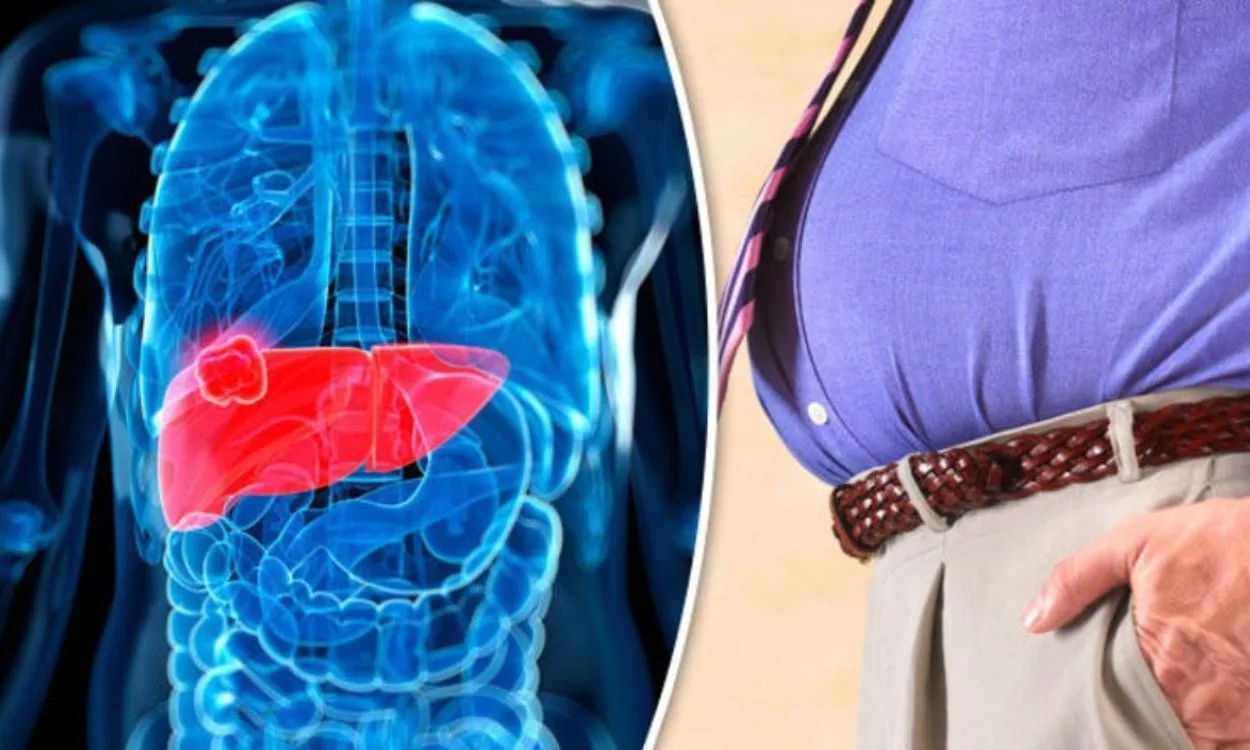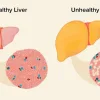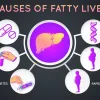Can Obesity Cause Fatty Liver?
Obesity is a significant health concern that affects a large portion of the population worldwide. It is well-known that obesity can lead to various health problems, including cardiovascular disease, diabetes, and joint problems. Another condition that is closely associated with obesity is fatty liver disease. In this article, we will explore the connection between obesity and fatty liver, its causes, symptoms, and potential treatment options.
What is Fatty Liver?
Fatty liver, medically known as hepatic steatosis, is a condition characterized by the accumulation of fat in the liver cells. In a healthy liver, a small amount of fat is normal, but when the fat content exceeds 5-10% of the liver’s weight, it is termed as fatty liver. This excessive fat accumulation can interfere with the liver’s normal functioning and lead to inflammation and liver damage.
Obesity and Fatty Liver: The Connection
Obesity is considered one of the leading causes of fatty liver disease. When a person is overweight or obese, their body tends to store fat in various places, including the liver. The exact mechanism behind this fat accumulation in the liver is not fully understood, but it is believed to be related to insulin resistance and the metabolic changes associated with obesity.
Insulin resistance occurs when the body’s cells become less responsive to the effects of insulin, leading to higher levels of insulin in the blood. This can promote fat storage in the liver and disrupt the normal metabolism of fats. Additionally, obesity is often accompanied by high levels of triglycerides and cholesterol in the blood, which can further contribute to the development of fatty liver.
Symptoms of Fatty Liver
Fatty liver is often asymptomatic in its early stages, and many people may not be aware of their condition. However, as the disease progresses, some individuals may experience symptoms such as:
- Fatigue and weakness
- Abdominal discomfort or pain
- Loss of appetite
- Weight loss
- Jaundice (yellowing of the skin and eyes)
- Swelling in the legs and abdomen
It is important to note that these symptoms are not specific to fatty liver and can be seen in other liver diseases as well. Therefore, a proper diagnosis is crucial for determining the underlying cause.
Diagnosis and Treatment
If fatty liver is suspected, your doctor may recommend several tests to confirm the diagnosis. These may include blood tests to assess liver function, imaging studies such as ultrasound or MRI, and in some cases, a liver biopsy to examine the liver tissue.
The primary treatment for fatty liver is lifestyle modifications, particularly focusing on weight loss and improving insulin sensitivity. The following steps can help manage and reduce the fat in the liver:
- Weight Loss: Losing even a small amount of weight can significantly reduce liver fat. A gradual weight loss of 1-2 pounds per week is recommended to ensure sustainable and long-lasting results.
- Healthy Diet: Adopting a balanced and nutritious diet is essential. Include plenty of fruits, vegetables, whole grains, lean proteins, and healthy fats while limiting processed foods, sugary beverages, and saturated fats.
- Regular Exercise: Engaging in regular physical activity can aid in weight loss, improve insulin sensitivity, and promote overall liver health. Aim for at least 150 minutes of moderate-intensity exercise or 75 minutes of vigorous exercise per week.
- Avoid Alcohol: Alcohol consumption can worsen liver damage in individuals with fatty liver disease. It is crucial to abstain from alcohol or consume it in moderation under medical supervision.
In addition to lifestyle changes, certain medications may be prescribed to manage specific underlying conditions such as high cholesterol or diabetes, which can contribute to fatty liver disease.
Fitpaa: Your Companion in Achieving a Healthy Lifestyle
If you are ready to take control of your health and make positive changes, Fitpaa can assist you on your journey towards a healthy lifestyle. Fitpaa offers a comprehensive approach to health and fitness, combining AI-driven technology with expert guidance.
With the Fitpaa app, you can benefit from personalized fitness plans, nutrition guidance, and real-time monitoring of your progress. Fitpaa’s advanced technology helps optimize your metabolism, burn unhealthy fat, and regulate various hormones to support your health and fitness goals. The app provides a virtual workout trainer, diet tracker, performance tracking, and much more to make following your fitness plan effortless.
Fitpaa’s team of fitness planners, nutritionists, trainers, and doctors will regularly review your progress and provide guidance to ensure you stay on track. By utilizing Fitpaa’s comprehensive services, you can achieve your health and fitness goals with guaranteed results.
Experience the joy of a healthier life by downloading the Fitpaa app today. Your wellbeing is our mission, and we are here to support you every step of the way. Start your journey towards a healthier you with Fitpaa!









